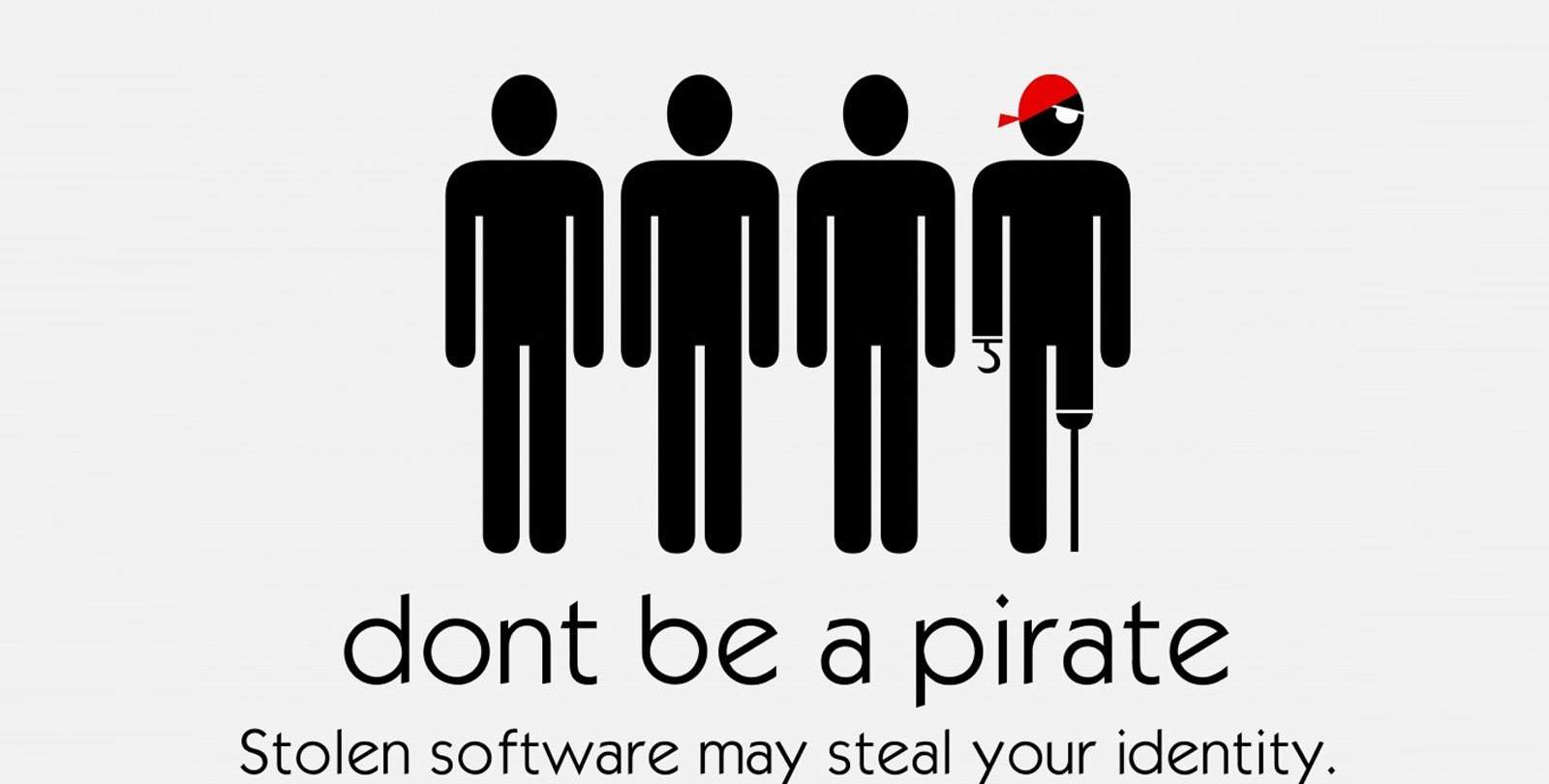A recent study titled ‘The Link Between Pirated Software and Cybersecurity Breaches’ has revealed that cybercriminals are deploying malware specifically through pirated software to PCs that are being sold to unsuspecting consumers and companies. The study was conducted by the International Data Corporation (IDC), in partnership with the National University of Singapore (NUS), and published by Microsoft as part of the company’s Play it Safe campaign.
This global study surveyed 1,700 consumers, IT workers, CIOs, as well as government officials within multiple countries, and analysed 203 computers that were purchased in Brazil, China, India, Indonesia, Mexico, Russia, South Korea, Thailand, Turkey, Ukraine, and the United States of America. All computers were pre-infected with unsafe malware including Trojans, worms, viruses, hacktools, rootkits and adware.
Companies have it harder than ever as the study suggests that around $500 billion will be spent this year alone in order to deal with issues caused by malware. Of this $500 billion around $364 billion is expected to be used to deal with data breaches whilst the rest will be spent on other security issues. That is not where it stops, however, as the study also went on to say that consumers alone are expected to spend $25 billion this year alone on pirated software, which leads to a total wasted time of about 1.2 billion hours in troubleshooting due to malware and security concerns.
It is estimated that governments lose more than $50 billion annually due to having to deal with costs associated with malware on pirated software. Officials expressed concern about the potential impact of cybersecurity threats with the primary area of concern being loss of business trade secrets or competitive information; unauthorised access to confidential government information; and the impact of cyberattacks on critical infrastructure. These exact fears have gained media attention in the last few years, notably through news of the ‘hacktivist’ group, Anonymous and Edward Snowden’s Wikileaks.
In the study, 60% of the consumers surveyed said that their greatest fear from infected software was the loss of data and personal information; followed by the fear of unauthorised internet transactions, and hijacking of email and bank accounts. It has also been revealed that 43% of the consumers surveyed do not install security updates which leaves their computers vulnerable to attack by cybercriminals.
Despite international fears, South Africa is taking a proactive stance on piracy.
A press release from the Digital Crimes Unit at Microsoft South Africa titled ‘Lowering the boom on South Africa software pirates’, details how in an effort to clamp down on piracy in South Africa, the South African Police Service’s (SAPS) Directorate Priority Crimes Investigations (otherwise known as the Hawks) have executed raids on the premises of various resellers who had been identified by Microsoft piracy prevention programmes as being involved in the selling of counterfeit and unlicensed Microsoft software.
Around 100 counterfeit disks containing Microsoft software had been seized along with desktop computers operating on unlicensed Microsoft software. A suspect was arrested on-site and is due to appear in the Specialised Commercial Crimes Court for dealing in counterfeit goods, an offense that carries a R5, 000 penalty per disk or 6 months imprisonment.
The press release also makes mention of another case in Pretoria where the Magistrate handed down a custodial sentence to Mr Guo Liaxuang of E-Café in Hatfield, sentencing Liaxuang to supervised house arrest for a period of 12 months as well as correctional supervision for 2 years, during which he will be required to complete a behavior reform course and perform community service.
“At any given time, we have a number of active cases being investigated by the SAPS or being prosecuted by the National Prosecuting Authority. This is proof that the wheels of justice do turn and we’ve achieved several notable convictions of late,” says Marius Haman, Microsoft’s DCU lead for the Sub-Saharan Africa region.
“Microsoft is determined to protect our intellectual property as well as our customer and partner ecosystem from the threat and losses associated with software piracy. Our goal is to reduce those incidents in which customers end up buying PCs with unlicensed copies of Microsoft software and create a fair playing field for all partners,” explains Mr Haman. “Often cybercriminals exploit the vulnerabilities in counterfeit software through malware and spyware, which exposes consumers and businesses alike, to identity theft and/or cyber-attacks.”
If you have any leads regarding piracy and theft, you are encouraged to submit any piracy leads to [email protected]. For more information regarding piracy, you can visit Microsoft’s anti-piracy website at bit.ly/MicStopPir, and users who wish to find out whether their software is genuine or who want to learn more about the identification of counterfeit and unlicensed Microsoft software can go do so at http://bit.ly/How2Tell.
Junior Editor at Vamers. From Superman to Ironman; Bill Rizer to Sam Fisher and everything in-between, Edward loves it all. He is a Bachelor of Arts student and English Major specialising in Language and Literature. He is an avid writer and casual social networker with a flare for all things tech related.









